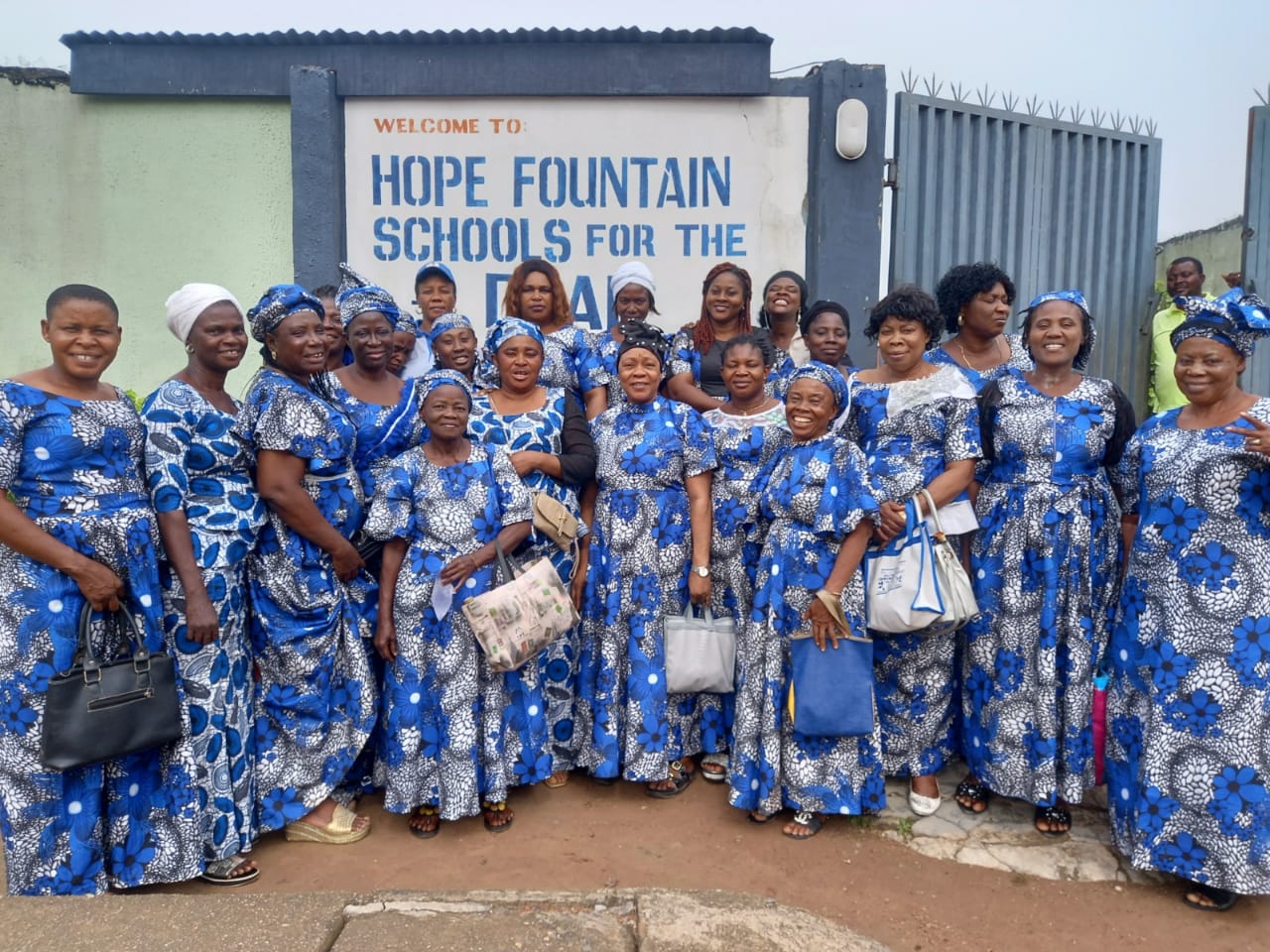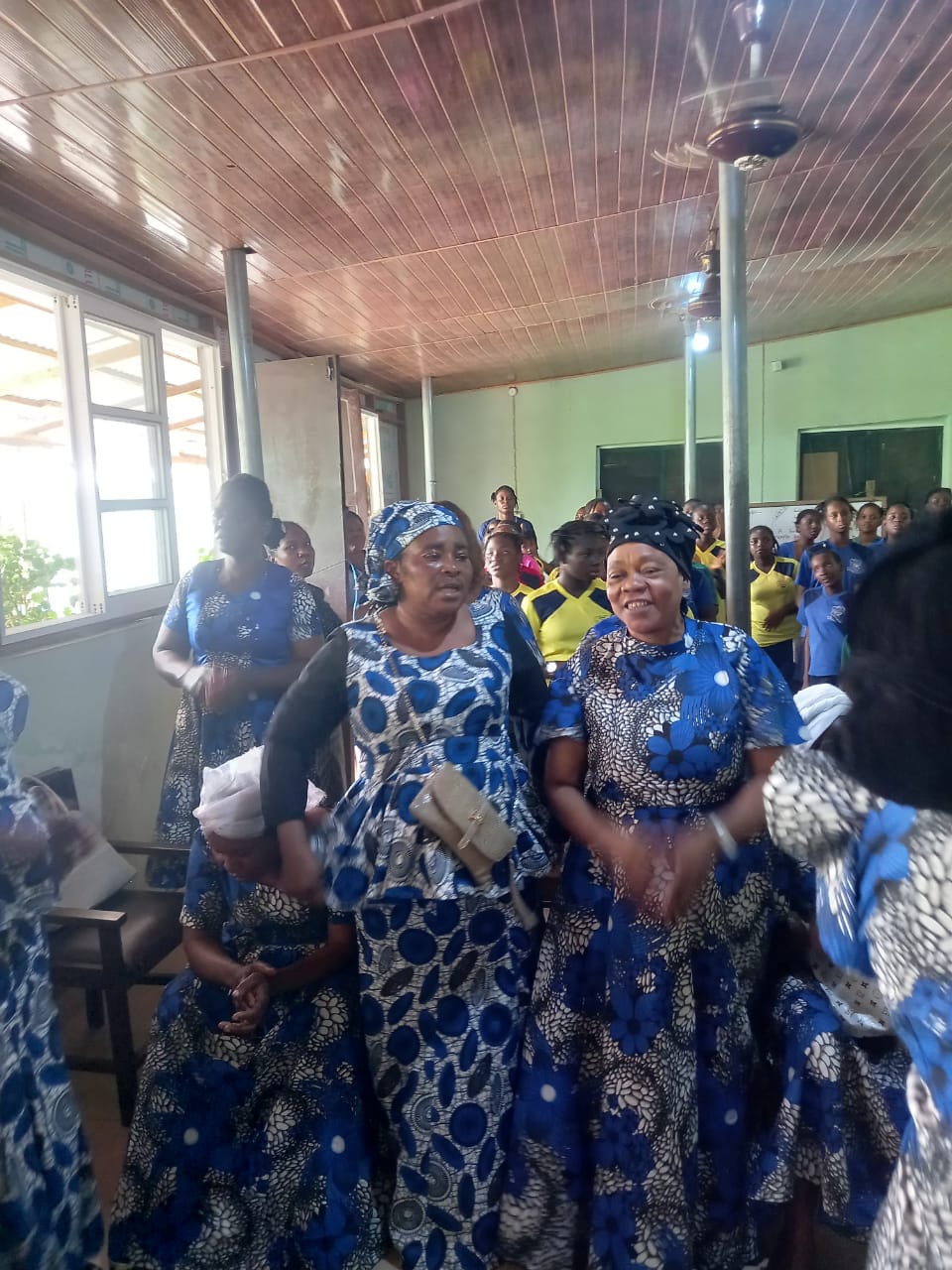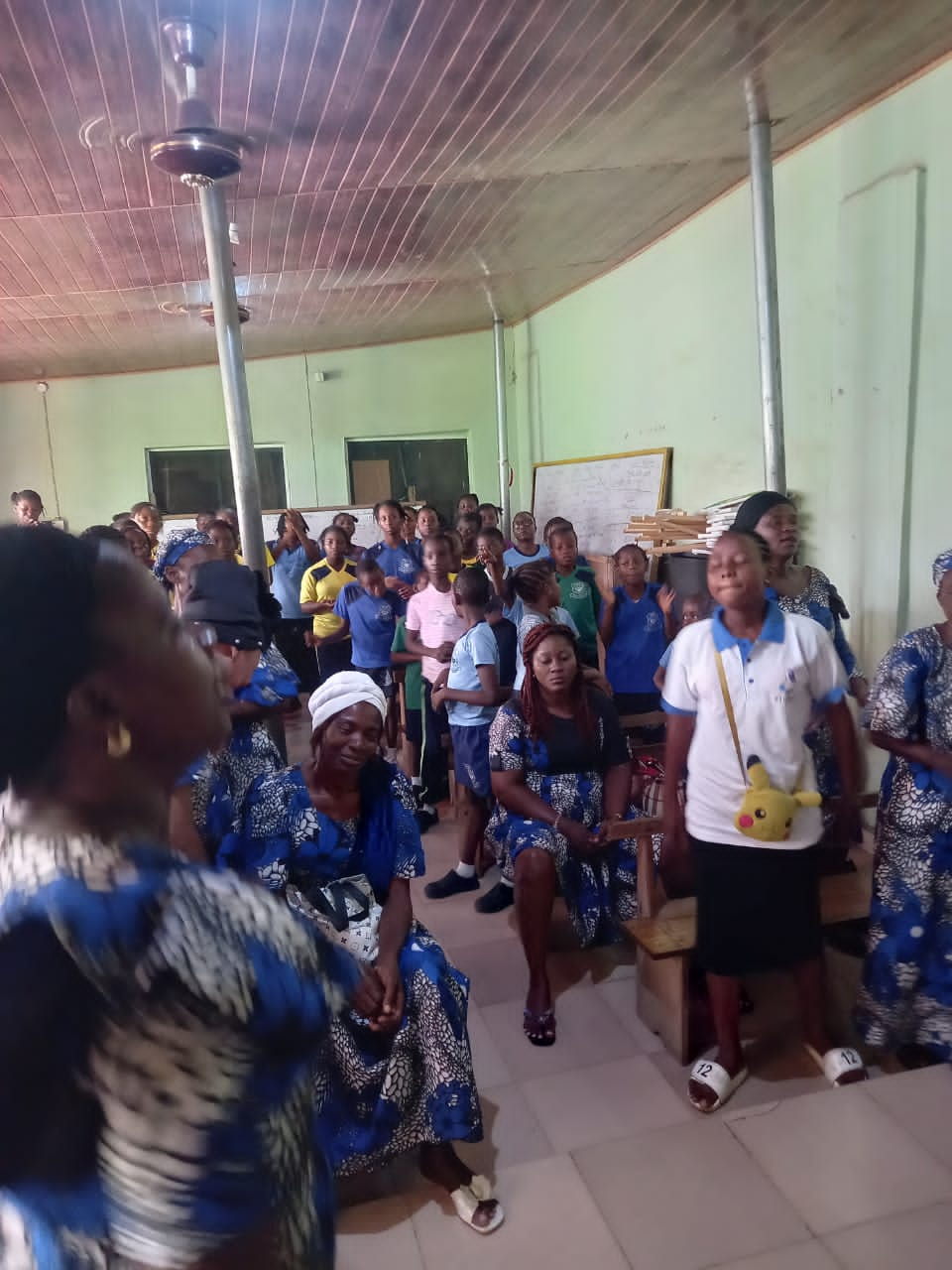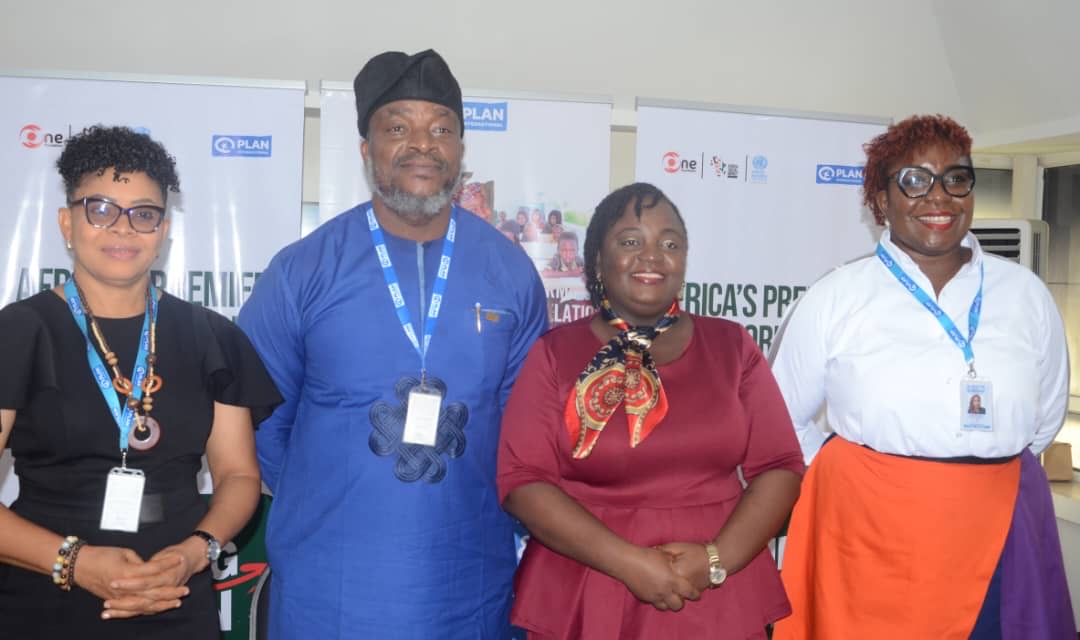ICI-GWODEF Marks 2023 UN Girl- Child Day With School For Deaf In Lagos
Posted on October 14, 2023
CYRIACUS IZUEKWE

A non-governmental organization, International Charitable Initiative for Girl Child and Woman Development Foundation (ICI-GWODEF) a.k.a Girl Child and Woman Foundation, has marked the UN 2023 Girl Child day With Hope Fountain School for the Deaf,Ojokolo,owned by Mr Anthony Nwokolo in Lagos State.
P.M.EXPRESS reports that some of the dignitaries who attended the event included their President, Barr. Mrs. Helen Nchedo Ibeji, Barr. Juliet Chika Ohanyiri – Secretary, Mrs. Olivia Nkoli Okaro – Financial Secretary, Mrs. Gloria Mmerim Uwaga – Assistant Secretary, Mrs. Owobi Atu – Welfare and others while the key speaker at the event was Mrs. Romoke Ojukwu.
This year’s edition, which was marked on 11th October, 2023, had as its theme: “Invest in Girls’ Rights: Our Leadership, Our Well-being”.
The Key Speaker, Mrs. Ojukwu, stated that Women are humans and need the same fundamental rights, such as education, a life free of violence, a fair wage, or the vote etc.
However, she noted that worldwide women are denied the human rights they are entitled to, because they are women and girls.
She advised that there was need to Invest in girls’ right to bring sustainable development, good leadership as protecting women’s rights will make the world a better place.
“Gender equality and the empowerment of women and girls is not just a goal in itself, but a key to sustainable development, economic growth, and peace and security.”
“These include the right to live free from violence and discrimination; to enjoy the highest attainable standard of physical and mental health; to be educated; to own property; to vote; and to earn an equal wage.”

She listed 10 benefits accrued to the girl’s right in the society, which will make the world a better place if it can be respected:
1. Fight Extreme
Gender equality is one of the most effective ways to fight extreme poverty and build healthier, wealthier, and more educated communities.
Studies show that women reinvest up to 90 percent of their incomes back into their families, compared to just 30-40 percent by men. Mothers provide better nutrition and health care and spend more on their children. Investing in women and girls creates long-term social and economic benefits for all individuals, their communities, and the world as a whole.
2. Keep girls in school to increase value
Over 31 million girls around the world don’t have the opportunity to pursue an education. Especially in the undeveloped world, everyday, they are taken out of school and forced to work or marry. One out of five girls in the developing world doesn’t even complete the sixth grade.
However, we know that educated girls and women are healthier, have the skills to make choices over their own future and can lift themselves, their communities and their countries out of poverty. Even one more year in school makes a difference. A girl’s income will increase by up to 25% every year she stays in school. If India enrolled 1% more girls in secondary school, the country’s GDP would rise by $5.5 billion.
3. Universal Access to Sexual Reproductive Health and Rights
222 million women today lack access to family planning services, information and contraception. If we doubled investment in family planning, we could:
Reduce unintended pregnancies by 68%
Avert newborn deaths by 35%
Reduce unsafe abortions by 70%
Contraceptives are one of the best investments a country can make for its future, delivering big savings in healthcare costs. For every dollar spent on family planning, governments can save up to 6 dollars on health, housing, water and other public services.
Family planning enables millions of girls to stay in school, saves lives and has the capacity to lift entire communities out of poverty.
4. End Teen Pregnancy
Each year, an estimated 16 million girls aged 15-19 give birth. Only 35% of unmarried girls and women in developing countries use a modern method of contraception — so most teen pregnancies are unplanned.
Girls who become pregnant are forced to leave school and are prone to high health risks, such as HIV, obstetric fistula, and complications during pregnancy. The number one cause of death for girls is childbirth.
By delaying teen pregnancies, girls are able to stay in school, invest in their futures and have healthier children when they are ready. If all young girls completed primary school, we could save 900,000 of their children each year. And if those girls got a secondary education, we could save three million lives.

5. Stop preventable maternal deaths
In a given year, approximately 300,000 women die from complications related to pregnancy and childbirth. Maternal mortality is much higher in poor communities and rural areas. 99% of all maternal deaths occur in developing countries.
AND, most maternal deaths are preventable. When women have access to health services and information by skilled health professionals during pregnancy and childbirth, this can make the difference between life and death — for the lives of women and their newborn babies.
6. Eradicate child marriage:
14 million girls are married before the age of 18 every year. In the developing world, poverty and traditional gender roles magnify this problem. 1 in 7 girls is married before age 15, and some child brides are married as young as 9 years old.
Young girls who are child brides become trapped in poverty without access to education and employment opportunities.
When girls have the opportunity to complete their education through secondary school, they are up to six times less likely to be married as children than girls with little or no education. Educated girls are also less likely to have unintended pregnancies as teenagers.
7. Equal Employment Opportunities
Women work two-thirds of the world’s working hours, produce half of the world’s food, but earn only 10% of the world’s income and own less than one percent of the world’s property. On average, women earn half of what men earn.
In order to achieve gender equality, women and men must have equal employment opportunities and receive equal pay.
8. Food security:
Women are a central part of the solution to ending hunger and poverty. Yet, female farmers face numerous constraints: they own less land, cultivate smaller plots of land, and have a harder time accessing credit.
If we want to reduce poverty and end hunger, we must give women access to the resources they need for agricultural production and participation. This could:
Increase farm yields by 20-30%
Increase agricultural output by 4 % . Reduce the number of hungry people in the world by 150 million
9. Combat gender-based violence:
One in three women and girls worldwide, one billion, will experience violence in their lifetime. Gender-based violence comes in many forms: torture, rape, sexual trafficking, honor killings, beatings during pregnancy and domestic violence. It affects women and girls at any age, in any country.
Violence is a major cause of poverty. It prevents women from pursuing an education, working, or earning the income they need to lift their families out of poverty.
10. End Female Genital Mutilation
100 to 140 million girls and women around the world have undergone genital mutilation — including 6.5 million in Western countries. This practice continues to be concentrated in Africa, where 90 million African women and girls have been victims. It is mostly carried out on young girls under 15.










